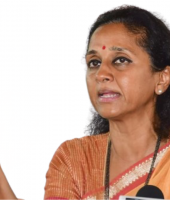UN envoy calls for curb on illicit weapons in Central African Republic
The head of the UN peacekeeping mission in the Central African Republic (MINUSCA) on Wednesday urged greater support for the country’s efforts to build a professional national army, as part of a security overhaul, and stem the proliferation of deadly illicit weapons.
Briefing ambassadors on the UN Security Council, Valentine Rugwabiza, Special Representative for the Central African Republic (CAR), recalled the 15 January explosion which targeted a patrol from the mission, killing one peacekeeper and wounding five others.
“Explosive ordinance devices (EODs) and light weapons are not only a threat to the population and peacekeepers but equally the most serious constraint to the delivery of humanitarian assistance in the western region where 50 per cent of the CAR population live,” she said.
She asked the Security Council for an “urgent, dedicated and truly multidimensional” response to the threat, by strengthening situational awareness, greater cross border cooperation and adequate training for ‘blue helmets’ and police, prior to their deployment.
“We need to do the utmost to prevent the spread of these lethal weapons to other regions of the CAR,” she stressed.
Virtually non-existent road network
In her briefing, Ms. Rugwabiza highlighted the CAR’s poor road network which only makes the security and humanitarian challenges worse.
Some three per cent of CAR’s road network is metalled, leaving the near complete dirt-road transport infrastructure unusable during the eight-month-long rainy season.
“Throughout the country, many villages are not reachable and almost cut off year-round.” She said this constitutes “a major challenge to the mobility of MINUSCA’s troops and the national security forces, and therefore to the State authority, over its territory.”
The problems are compounded by limited MINUSCA airlifting capacity, further imperilling emergency operations, including protection of civilians.
She called on the Council and wider UN membership to provide the mission with sufficient transport and logistics means to ensure greater support to the Government and security forces in protecting civilians and expanding their presence across the country.
Security sector reform
Ms. Rugwabiza outlined the mission’s work with the UN Country Team in CAR in rehabilitating and reconstructing administrative buildings in the country.
She added that MINUSCA will continue to cooperate closely and hold joint patrols with the CAR security forces, particularly in border areas and conflict hotspots.
Related to this was the urgent need for security sector reform, she highlighted, urging UN Member States and partners to “support CAR’s efforts and progress in building a professional national army and internal security forces.
“There is no alternative” to provide lasting security for the CAR population and “preservation of the sovereignty of its territory,” she concluded.
Mission background
MINUSCA was established in 2014 to help bring stability to the country torn by sectarian violence.
With a mandate to protect civilians, facilitate humanitarian aid, and support the political process, MINUSCA aims to foster peace and stability in the region amidst ongoing challenges.
The mission has an authorized strength of 16,363 uniformed and 1,522 civilian personnel.












Comment List